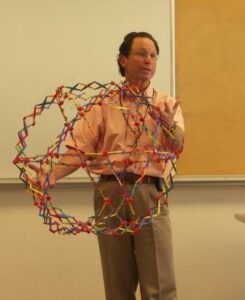What Coaching Offers
What Is Coaching?
Coaching is a transformational process engaging youth in a thought-provoking conversation of inquiry. The youth is honored as the expert in his/her life and held with unconditional positive regard. The coach believes that youth are creative, resourceful, and whole.
Coaching conversations only begin when there are clear agreements and commitments about the coaching process, relationships, and responsibilities of both the youth and coach. The agreement statement clarifies expectations, limitations, and benefits of the relationship.
As a partner in the coaching conversation and established in a safe space of caring, equal trust and respect (see Sanctuary document), the coach actively listens and inquires with “powerful” questions to facilitate the youth’s discovery process.

Benefits of a coaching conversation include:
- Exploration, clarification, and alignment with what the youth wants to achieve while providing the opportunity for clarity and focus
- Encouragement of self-discovery of values and beliefs
- Development of problem-solving and critical-thinking competencies
- Eliciting of youth-generated solutions and strategies
- Personal change that comes from the self-awareness and choices developed by the youth
Coaching concentrates on where the youth is and what he or she is willing to do to attain future goals. With an emphasis on co-designing actionable outcomes, the youth agrees to be held accountable for his or her commitments.
Coaching conversations help move students from the back seat to the driver’s seat. There, they take hold of their lives and become motivated learners who have aspirations and goals.
Creating New Observers — from Stuck to Choice
Have you ever looked at the night sky — and seen thousands of stars that looked completely random? Has anyone ever guided you to observe a constellation or a planet you had not noticed before — and from then on you looked at the sky differently with renewed curiosity?

Take a quick look at the photo on the right. What do you see – your first thought?
Now, look again for as long as you wish – what do you see? Did you have an “aha” moment?
(Hint: scroll to the bottom of the page for the answer)
Coaching facilitates the ability to become “new observers” — to notice things we did not see before — and to generate new choices.
Did you know?
It is thought that the use of the name “coach” came from a city in Hungary called Coc. Centuries ago, the main craft and business enterprise in the area was the fabrication of horse-drawn carriages called “cocs”, named after the city. This means of transportation would take people from the place they were at to the place they wanted to be — just as coaches do today!
What Coaching Can Accomplish
Adolescents who embraced coaching during our pilot program:
- Had a consistently higher GPA than both those who did not stay in coaching and those in a control group.
- Dreamed big and set ambitious goals.
- Were better prepared to rise above the ever-present distractions, chaos, and drama bombarding them.
- Developed essential life, school, and work-readiness skills.
- Felt supported to attend school, were motivated, remained focused, and were ready to learn.
- Developed critical-thinking, decision-making and advocacy skills essential for achieving the goals they set for themselves.
- Had a better understanding of who they are and how to relate effectively with others.
- Graduated feeling motivated and prepared to move on to higher education.
The Difference Between Coaching and Mentoring
Both mentoring and coaching youth rely on creating a trusting, safe, and respectful relationship.
A mentor serves as a positive role model and becomes a buddy engaging in activities and skills of interest to his or her mentee. It is a relationship in which the mentor can guide the mentee from the mentor’s own experiences. A mentor can fill a void in a young person’s life, while providing stability and support.
Coaching is a transformational process engaging youth in a thought-provoking and creative process of inquiry to help develop problem-solving and critical-thinking skills. Coaches do not advise. Rather, the coaching partnership creates personal change and actionable outcomes that come from the self-awareness and choices of the person being coached. The emphasis on coaching is on action. That means becoming accountable to goals established by the youth and creating a path toward success.
The Role of a Coach
- Establish trust and understanding through non-judgmental presence

(see Sanctuary document). - Help students see they may have broader choices and opportunities.
- Help students understand their strengths.
- Help students rekindle hope and set goals.
- Help students take control of their lives and their futures.
- Help students develop perseverance by successfully facing challenges that may have once seemed impossible.
- Hold students accountable to their goals and their dreams.
- Help students develop a network of support.
- Be that trusted person in students’ lives to recognize and celebrate their success.
- Help students practice and master 21st century skills and develop the competencies that will serve them in academics, in the workplace, and in life.
Please see the Videos menu for clips of our Volunteer Success Coaches as they share their experiences coaching teens.
Answer: Do you see a woman posing as a parrot?